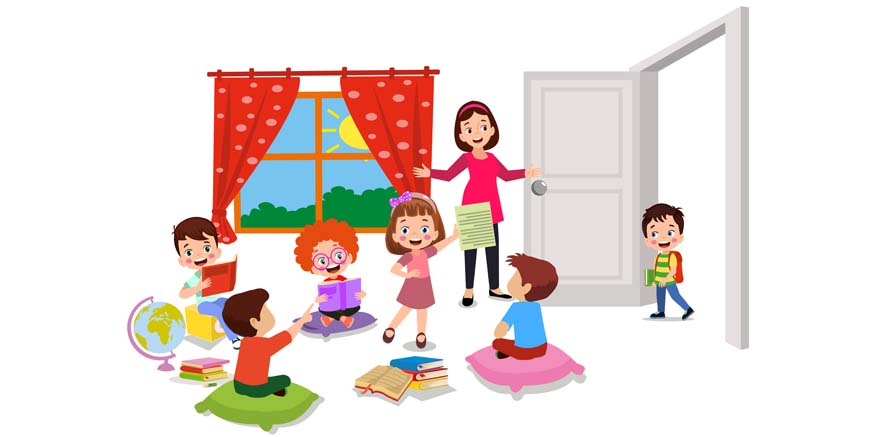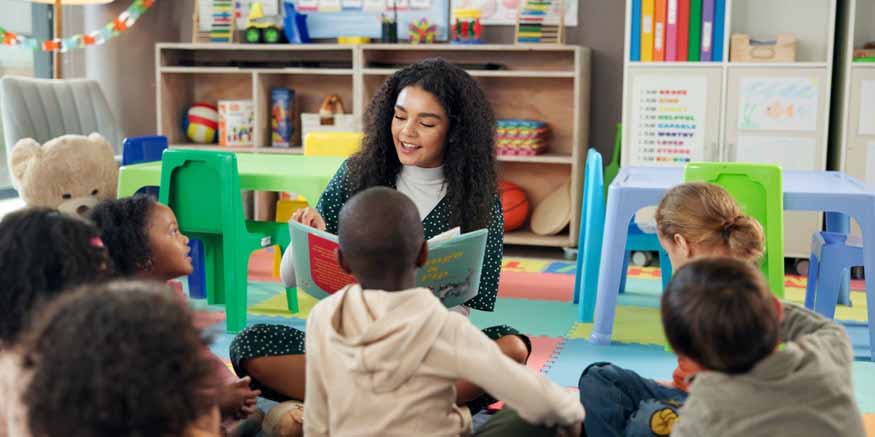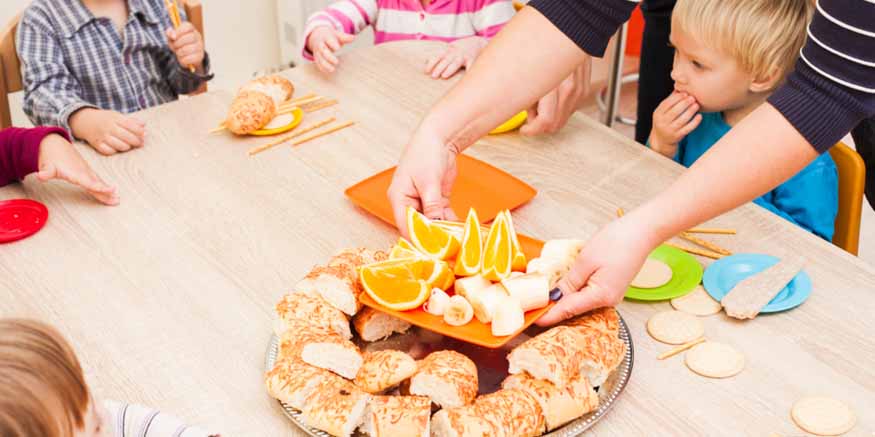Pre-nursery children, usually between the ages of two and five, learn at an incredible pace. During this time, kids are like little sponges that soak up knowledge from everything around them, often by copying others and engaging in role-play. These activities are more than just fun; they are key ways for young kids to learn and build important skills.
Imitation is a basic way of learning where kids watch and copy the actions, behaviours, and skills of those around them. This starts when they are very young, with babies mimicking the faces and sounds of their parents. As they get older, their ability to imitate grows more advanced, including actions, speech, and more complex behaviours. Imitation is essential for learning because it helps children pick up new skills and understand social rules by observing others.
The Role of Imitation in Learning

Language Development: Kids learn to speak by copying the sounds and words they hear from grown-ups. This helps them build their vocabulary, understand grammar, and improve their pronunciation.
Social Skills: By watching and imitating how people interact, kids learn to communicate, share, and work together. They start recognising social signals and learning to behave in various situations.
Motor Skills: When children mimic physical activities like walking, running enhances their fine and gross motor skills.
Problem-Solving: Watching how adults or peers solve problems allows children to understand different approaches and strategies, enhancing their cognitive abilities.
Understanding What is Role Play
Role-play is when kids pretend to be different people or characters in various situations. They might act like a teacher, a doctor, a parent, or even someone from a story. By engaging in role-play, children learn about different parts of life and express their thoughts about various roles and responsibilities.
Importance of Role Play

The importance of role-play in early childhood education cannot be overstated. It offers a multitude of benefits that contribute to a child’s holistic development:
Developing Life Skills: Role play helps children understand and practice real-life skills such as decision-making, conflict resolution, and effective communication. These skills are essential for their future success.
Building Confidence: By assuming different roles and successfully navigating various scenarios, children build self-confidence. They learn to trust their abilities and feel more competent in handling new situations.
Fostering Independence: Role play allows children to explore and experiment independently. They learn to make choices, take initiative, and develop a sense of autonomy.
Encouraging Exploration: Children use role play to explore different professions, cultures, and social roles. This broadens their understanding of the world and fosters curiosity and open-mindedness.
Enhancing Communication: Regular engagement in role-play activities improves children’s ability to articulate their thoughts and ideas clearly. They learn the nuances of verbal and non-verbal communication, which is vital for their overall development.
Tips for Encouraging Imitation and Role Play in Kids
Here are some helpful suggestions for parents and teachers to boost imitation and role-play in young kids:
Set Up an Engaging Space: Offer a range of toys, props, and costumes that spark role-play. Things like toy kitchens, doctor kits, and dress-up outfits can motivate kids to dive into imaginative play.
Get Involved in the Fun: Take part in role-play activities alongside the kids. Your participation can help guide their play and make it more enjoyable and meaningful.
Promote Storytelling: Encourage kids to come up with and tell their own stories during role play. This helps boost their creativity and language abilities.
Appreciate Their Creativity: Show excitement and support for the kids’ role-play efforts. Positive feedback motivates them to keep exploring and learning through play.
Role Play Examples for Kids
Role-playing games for kids are a fun and creative way for them to learn and boost their imagination. Here are some game ideas for your little ones.
Bakery: Kids can set up their bakery and whip up delicious treats to sell to their friends acting as customers. They can make pretend cookies and cakes using cut-outs from cardboard and crayons, and even create a double oven using bookshelves. If you want, you can also get some ready-made baking playsets to make it even easier.
Fairy Tale Plays: Fairy tales are perfect for igniting kids’ imaginations. Children can easily connect with these stories, and acting them out with colourful cardboard sets can help them remember the tales and learn the important lessons they teach. Performing stories like ‘The Three Little Pigs’ or ‘Goldilocks’ are fantastic ways for kids to engage in dramatic play while memorising the stories.
Flower shop: Creating a flower shop is a fantastic role-playing activity for children. They can discover various types of flowers, the times of year they typically blossom, and even their other names. To enhance the fun, encourage them to craft flower cut-outs and put together lovely bouquets tied with pretty ribbons. This role-play can also help improve their math skills as they count the flowers and sell the bouquets to their customers.
Understanding imitation and role-play is essential for recognising the significance of these activities in early childhood education. Through imitation, children learn essential skills by observing and replicating the actions of those around them. Role play for kids provides a powerful means for exploring different roles, enhancing creativity, and developing social and emotional skills. The importance of role-play lies in its ability to foster holistic development, building a foundation for lifelong learning and personal growth.
At Center Point School, we recognise the critical role of imitation and role play in the development of young children. Our curriculum incorporates these activities to create a dynamic and engaging learning environment where children can thrive. By nurturing their natural curiosity and creativity, we aim to equip our students with the skills and confidence needed for future success.












Recent Comments